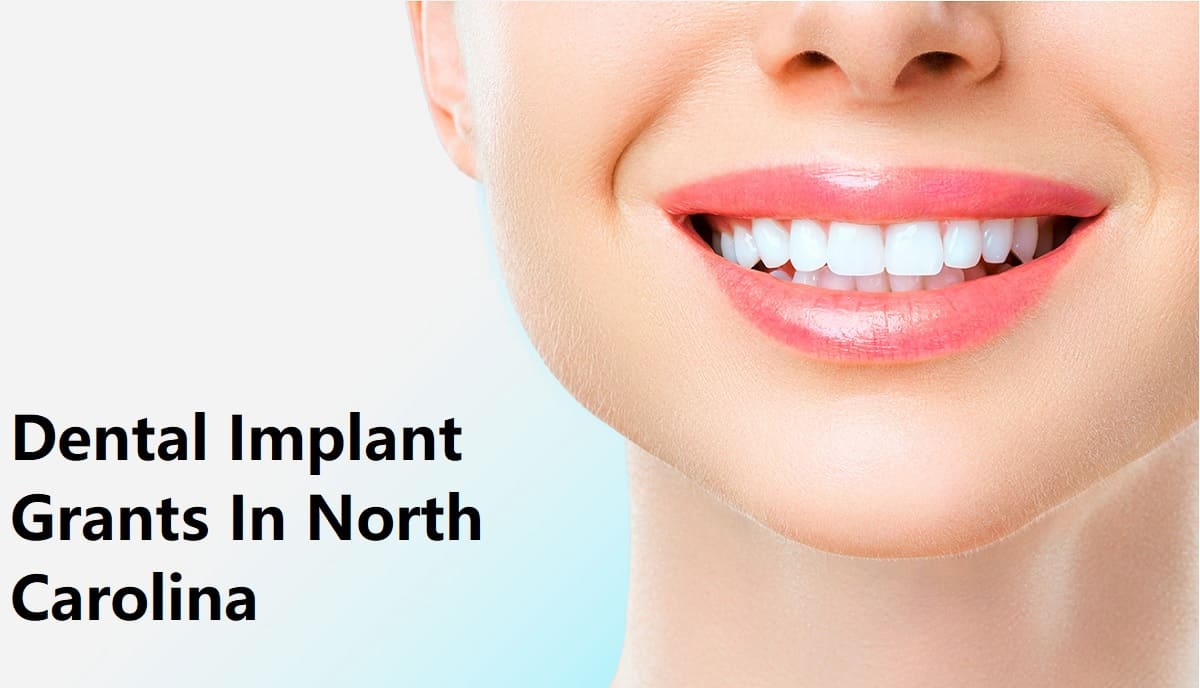Multiple Sclerosis Dental Grants in 2024: Finding Financial Assistance for Oral Health Care

Multiple sclerosis (MS) is an autoimmune disease that affects the central nervous system. It can cause issues like fatigue, mobility problems, vision changes, and numbness or tingling. But MS doesn’t just impact your overall health – it can also affect your oral health.
Many people with MS experience dental problems like dry mouth, jaw pain, and tooth decay. Unfortunately, getting dental care can be expensive, especially for those with disabilities or chronic illnesses. The good news is that there are organizations that provide grants and financial assistance for MS patients who need help paying for dental treatment.
In this guide, we’ll explain some of the common dental issues faced by MS patients, why good oral health is so important, and detail various grant programs available in 2024 that can help cover the costs of your oral health care needs.
Dental Issues Common for Those with Multiple Sclerosis
There are a few key dental problems often seen in those living with MS:
Dry Mouth
Dry mouth, also called xerostomia, is a common side effect of many MS medications. It stems from reduced saliva production, which leaves the mouth without its natural protection against cavities and infection. A dry mouth can cause bad breath, difficulties eating and swallowing, and increased dental decay. Around 80% of people with MS will experience dry mouth symptoms.
Medication Side Effects
The drugs used to slow MS progression, like anticholinergics and tricyclic antidepressants, reduce saliva flow as a side effect. Corticosteroids used to treat MS flares also have oral health risks like thrush, an oral fungal infection. These medication side effects make maintaining good dental health more difficult.
Jaw and Facial Pain
Some with advanced MS experience trigeminal neuralgia, a chronic pain condition affecting the trigeminal nerve in the face. It causes severe, stabbing facial pain, often triggered by talking, brushing teeth, eating, or even just a light touch to the face. The exact cause is unknown, but it may stem from MS-related nerve damage.
Muscular Issues
MS can cause muscular problems like temporomandibular joint (TMJ) dysfunction which leads to pain, stiffness, clicking noises, and limited jaw movement. Muscle spasms and tremors, as well as a weakened bite, can make brushing, flossing, and other oral hygiene tasks more challenging.
Poor Nutrition
Difficulties in eating and swallowing caused by MS can lead to nutritional issues. A healthy diet is vital for good oral health. Nutrient deficiencies, especially lack of vitamin D and calcium, negatively impact teeth and gum health.
Why Good Oral Health Matters for Those with MS
When you’re chronically ill, it can be tempting to let your oral health slide in favor of what seem like more pressing medical issues. However, maintaining good dental care is a key part of managing MS and safeguarding your overall health. Here’s why it matters:
Prevent Tooth Decay and Loss
Tooth decay and gum disease are major causes of tooth loss. For those with dexterity issues due to MS, losing teeth can impact nutrition, speech, and self-confidence. Practicing thorough oral hygiene and seeing your dentist regularly helps protect your teeth as you age with MS.
Reduce Chronic Infections
Gum disease stems from chronic bacterial infections in the gums which inflame tissue and destroy bone. Gum disease is linked to heart disease, diabetes complications, pneumonia, and premature birth. And research indicates chronic infection worsens MS symptoms. Controlling infections means controlling MS progression.
Lessen Impact of Dry Mouth
A dry mouth leaves you susceptible to cavities, gum inflammation, and other problems. However, a dentist can recommend treatments like saliva substitutes, fluoride applications, and medications to improve dry mouth and shield your teeth from its effects.
Improve Nutrition
Oral issues can make eating challenging. Nutritional supplements or diet advice from your dentist or doctor can help ensure you get sufficient daily calories and nutrients for energy and healing. A healthy diet supports your immune system and overall MS management.
Prevent Jaw and Facial Pain
Seeing an orofacial pain specialist at the first sign of trigeminal neuralgia allows early treatment before the pain intensifies. Physical therapy helps ease TMJ joint and muscular issues. Preventive dental care can mean avoiding profound facial pain.
Boost Mental Health
Difficulties with eating, speaking, dental pain, and tooth loss all negatively impact mental health for those coping with MS. By maintaining your oral health, you help preserve your self-esteem and confidence in battling MS.
Dental Grants for Uninsured MS Patients
Dental care can become very expensive for those living with long-term health conditions. And government disability benefits like SSDI provide only limited dental coverage – or none at all. If you’re uninsured or unable to pay for your dental treatment, some grant programs may be able to help.
MSAA Dental Support Program
The Multiple Sclerosis Association of America is one of the leading MS advocacy and support organizations in the country. Their dental support program provides grants to MS patients in financial need to help pay for dental care costs.
You must meet eligibility criteria and complete an application process to qualify. The grants offered depend on available funding each year. But they can cover things like office visits, x-rays, cleanings, fillings, dentures, oral surgery, and more.
Medicare and Medicaid
If you have Medicare, it does not include routine dental care. However traditional Medicare will cover dental services that are a necessary part of covered medical treatment. For instance, tooth extractions in preparation for radiation treatment for oral cancer.
If you have both Medicare and Medicaid, your state Medicaid program may offer some basic dental benefits depending on income level. This can include services like cleanings, fillings, tooth extractions, and dentures. Medicaid benefits vary widely by state in terms of coverage and participating dentists.
CareCredit
This healthcare credit card through Synchrony Bank offers special financing options for dental care and other medical procedures. You can qualify for 6, 12, or 18 month payment plans with no interest. Longer-term plans from 24-60 months are available at a reduced interest rate. Using CareCredit lets you start treatment and then pay it off over time.
Medical Bills Charities
Various medical bill financial assistance programs may occasionally help with dental bills. These include the HealthWell Foundation, the Assistance Fund, and the National Foundation for Transplants. These aren’t MS-specific, but provide aid for those struggling with various health costs.
Local Dental Society Resources
Many local or state dental societies have referral networks to help the uninsured or underinsured get low or no-cost dental care. They may also have volunteer dentist programs or know of clinics providing dental services on sliding-scale fees. Contact your state or city dental association to learn about services in your area.
Dental Schools
Getting dental work done through universities with a dental school often costs much less. Students will perform treatment under close faculty supervision at a fraction of standard rates. Look for dental schools associated with universities near where you live.
Applying for MS Dental Grants and Aid

Applying for dental financial assistance involves gathering information, and documentation, and asking your providers for help. Here are some tips:
- Learn application requirements – Contact any grant programs or aid resources to learn their specific eligibility rules, the necessary paperwork to provide, and how to submit your application.
- Get estimates for treatment – Dentist cost estimates documenting what treatment you need will help aid programs determine what to cover.
- Request dental records – Programs will want your dental history to confirm you require assistance and will benefit from treatment.
- Ask your dentist for advice – Speak to your dentist about your situation and goals for obtaining aid for recommended treatment. They may be able to suggest appropriate aid programs.
- Talk to your neurologist – Your MS doctor can provide documentation verifying your disability, symptoms, and medical necessity of dental treatment in a letter.
- Gather financial records – You’ll need to submit records like pay stubs, tax returns, and bank statements showing your inability to pay for the dental care you need.
- Apply early – Don’t wait until you’re in dental pain or your condition has worsened. Give yourself plenty of time for the application process so you can get the required dental care sooner.
Frequently Asked Questions About MS Dental Grants
Still, have questions about financial assistance for dental care costs related to your multiple sclerosis? Here are answers to some common FAQs.
Can I apply for multiple MS dental grants?
Yes, you may apply for more than one grant or aid program at a time. Each one may cover different treatments, procedures, or providers. Applying to multiple sources improves your chances of getting assistance with the full scope of dental care expenses you’re facing.
What dental services do these grants provide?
The types of dental care services covered depend on the specific program. But commonly covered treatments include dental visits, x-rays, cleanings, fluoride, fillings, tooth extractions, crowns, dentures, implants, and gum disease treatment. More extensive procedures may require detailed treatment plans from your dentist.
How much money do the grants offer?
The amount each MS patient receives in grant funding varies. It’s based on available financing that year and the scope of your necessary procedures. Simpler preventive care may get a few hundred dollars while major treatment could get over $5,000 in aid. The goal is to cover as much of the patient’s dental costs as possible within that program’s budget constraints.
How do I find dentists accepting these grants?
In your grant application, list the dentist(s) you’d like to see for treatment. The aid program will notify you if they are within their provider network. If not, you can ask your dentist if they’ll accept payment from that grant organization. Many dentists are willing to work with aid programs and uninsured patients requiring extensive treatment.
Do the grants have income limits?
Yes, MS dental grants have income eligibility requirements based on the Federal Poverty Guidelines. Applicants must prove household financial hardship making them unable to afford all their necessary dental treatment costs. Income thresholds and documentation required vary between programs but are typically 200-400% of the FPL.
How long does it take to get the grant money?
It varies between programs but can take 1-3 months from submitting your complete application to getting an approval decision. Once approved, the grant funds are paid directly to your dentist’s office upon completion of treatment. Programs want to link the aid funding to the actual dental costs incurred.
Conclusion
Managing multiple sclerosis often means facing additional barriers to getting comprehensive medical and dental care. However, maintaining good oral health is critically important for those with MS and other chronic illnesses. Fortunately, resources exist to help patients who need financial assistance paying for costly dental treatments.
In 2024 and beyond, MS dental grants, Medicaid coverage expansions, sliding-scale clinics, university dental programs, and other aid can provide uninsured patients access to oral health services. This guide outlined the common dental issues faced by MS patients, available assistance programs, and tips for successfully applying for grants and aid.
With persistence and creativity in seeking support, those living with multiple sclerosis can get the dental care they need despite financial limitations. Don’t ignore your oral health – explore grants, community dental resources, and payment plans so you can take control of your MS management.
Mustafa Al Mahmud is a passionate medical writer and health enthusiast. He is excited to share his knowledge and make reliable health information more accessible through Quick Medico. Mustafa aims to write about common diseases, medications, wellness topics, and the latest health research in easy-to-understand language. He believes clear and accurate health communication empowers readers to take charge of their well-being. In his free time, Mustafa enjoys hiking, cooking, and spending time with his family.



